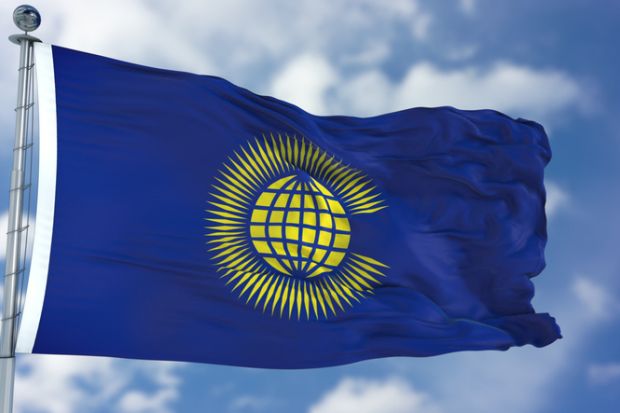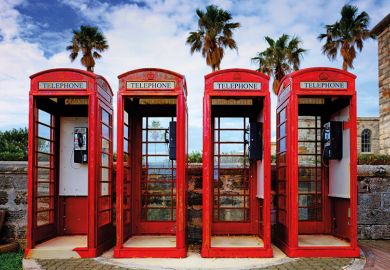Access to good internet connections is a challenge facing universities in the developing world during the Covid-19 crisis, a conference heard.
Sharon Memis, chief operating officer of the Association of Commonwealth Universities, presented initial findings from a survey about how Covid has impacted the ACU’s more than 500 member universities at an online conference organised by the University of London’s Institute of Commonwealth Studies. Two-thirds of member universities are based in lower- and middle-income countries, which together represent 1 million academic and management staff as well as 1 million students.
At the most basic level, said Ms Memis, 51 per cent of the universities that responded had “fully closed” and another 41 per cent had “partially closed”. Meanwhile, “60 per cent of respondents identified both internet speed and data costs as key problems”, while “lack of access and affordability of internet is obviously exacerbating existing inequalities” between, for example, “the wealthy urban young” and “disadvantaged rural populations”.
Universities around the world are relying on online solutions to facilitate remote teaching and research during coronavirus-linked lockdowns.
Yet Ms Memis also pointed to many more positive developments such as “stories of how students are contributing to society in innovative ways. At Kenyatta University, they produced Kenya’s first home-grown prototype ventilator to treat patients. At Stellenbosch University in South Africa, students were using 3D printing to produce protective gear for people working on the front line. Many universities in the West Indies, Namibia and the Asia-Pacific region started to use their labs to produce hand sanitisers...[There has been] lots of work which will be incredibly useful for the world going forward.”
The ACU’s own networks of universities had also proved robust. One is devoted to peace and reconciliation, explained Ms Memis, and, “in an event at Stellenbosch last week, we were looking at how the Covid-19 crisis can be used to reset the curriculum in the context of Black Lives Matter and decolonising the curriculum. Another project in East Africa, where there’s a huge shortage of faculty and teaching staff, is building capacity for regional online teaching and training. That has proved quite transformative during the pandemic and can be used to mentor and guide other local universities.”
More generally, added Ms Memis, the ACU’s member universities “see opportunities to migrate very rapidly to online teaching and learning”. In managing a number of scholarship schemes for the British government, the association had been “working on some quite innovative programmes with universities to do split-site distance learning, [and to facilitate] movement between countries”. Although more than half the survey respondents did not consider “a purely online degree equivalent to one earned entirely through face-to-face learning”, nearly 90 per cent did regard blended degrees as equivalent.
“Everybody seemed to be of the view that online is here to stay,” concluded Ms Memis, “but blended is the way forward.”
Register to continue
Why register?
- Registration is free and only takes a moment
- Once registered, you can read 3 articles a month
- Sign up for our newsletter
Subscribe
Or subscribe for unlimited access to:
- Unlimited access to news, views, insights & reviews
- Digital editions
- Digital access to THE’s university and college rankings analysis
Already registered or a current subscriber?








